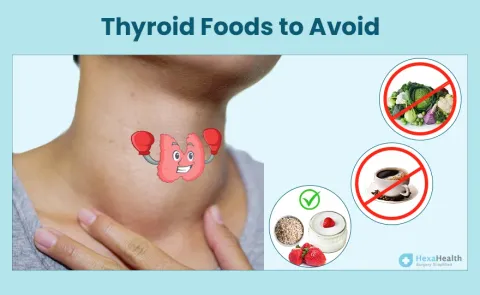
What you eat can affect your thyroid gland as well as your body’s ability to use thyroid hormone. Learn which foods to avoid when managing hypothyroidism.
Hypothyroidism is a condition in which the thyroid gland doesn’t produce enough thyroid hormone, which can lead to symptoms such as fatigue, hair loss, and difficulty concentrating. According to the U.S. National Library of Medicine , this condition is more common in women and people over 50. Although medical treatment is essential, nutrition plays a crucial role in managing this condition.
How does diet affect hypothyroidism?
According to the Nutrigenomics Institute in Spain , some foods can interfere with thyroid function or the absorption of medications for hypothyroidism. Although it’s not necessary to completely eliminate them, it is important to monitor and space out their consumption.
5 Foods to Avoid if You Have Hypothyroidism
- Soy : Contains isoflavones, which may affect thyroid hormone production.
- Cruciferous vegetables : Such as broccoli, kale, and cauliflower, contain compounds that can interfere with thyroid function.
- Ultra-processed foods : Cookies, cakes, and chips often have high levels of sodium and unhealthy fats, which can aggravate symptoms.
- Gluten : In people with gluten sensitivity, it can cause inflammation and affect the absorption of medications.
- Tuna : Although it is high in protein, it contains mercury, which can interfere with thyroid function
Important recommendations
If you suspect you have hypothyroidism, it’s essential to see a healthcare professional for an accurate diagnosis. If you’ve already been diagnosed, consult a specialist before making any changes to your diet. Avoid sudden changes and look for options that complement your medical treatment.
Conclusion
Hypothyroidism is a condition that requires medical attention and careful dietary management. Avoiding certain foods can help improve symptoms and optimize treatment. Remember that the key is moderation and following your doctor’s recommendations .






